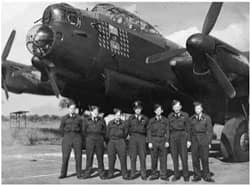By Stanley Hauerwas
 America is assumed to be different. We are different because Christianity is thought still to thrive in America. Whereas Christianity is allegedly dying in Europe, it seems alive and well in America. That Christianity still seems a vital faith in America confirms for many the contention that there is an inherent link between Christianity and democracy. For it is assumed that not only is America a Christian nation, it is the paradigmatic exemplification of democracy.
America is assumed to be different. We are different because Christianity is thought still to thrive in America. Whereas Christianity is allegedly dying in Europe, it seems alive and well in America. That Christianity still seems a vital faith in America confirms for many the contention that there is an inherent link between Christianity and democracy. For it is assumed that not only is America a Christian nation, it is the paradigmatic exemplification of democracy.
In A Secular Age, Charles Taylor tries to explain what in particular accounts for this presumed difference between America and Europe. At least one of the reasons, Taylor suggests, that may account for the difference is America never had an ancient regime in which a hierarchical social order was given legitimacy by the church. Also at work may be the different role of elites in determining general attitudes toward belief and unbelief. For example, the skepticism of academic elites in British society had more effect in England because elites have more prestige in British society than elites in America.
Taylor suggests that the primary reason for the American difference is due to the development of a common civil religion that allowed Americans, as well as immigrants in America, to understand their faiths as contributing to a consensus summed up by the motto, "E pluribus Unum." This is in marked contrast to Europe where religious identities have been the source of division either between dissenters and the national church or between church and lay forces. But in America religious difference is subordinated to "one nation under God." Religious people in America may find they are in deep disagreement about abortion or gay marriage, but those disagreements are subordinated to their common loyalty to America. But that subordination also includes their faith in God; that is, whatever kind of Christian (or non-Christian) they may or may not be, their faith should be in harmony with what it means to be an American.
Taylor observes that this difference also accounts for the respective attitudes Europeans and Americans have toward national identities. Europeans generally are quite reticent about national identity. That they are so Taylor attributes to the experience and memory of the First and Second World Wars that devastated Europe. He observes that war, even wars that seem "righteous," now make most Europeans uneasy. But that is not the case with Americans. Americans' lack of unease with war may be, Taylor suggests, because they wrongly think there are fewer skeletons in the American closet when compared to the European closet. Yet Taylor thinks the reason for the American support of war is simpler. "It is easier," Taylor observes, "to be unreservedly confident in your own righteousness when you are the hegemonic power."
I have no doubt Taylor is right to think America's unrivaled power in the world gives Americans a sense of confidence about our role as the "world's policeman," but I think Taylor does not make articulate -- to use one of Taylor's favorite words -- the relationship between American civil religion, our assumption that we are a "religious nation," and why war for most Americans is unproblematic. War is a moral necessity for America because it provides the experience of the "Unum" that makes the "pluribus" possible. War is America's central liturgical act necessary to renew our sense that we are a nation unlike other nations. World War I was the decisive moment because it was that war that finally healed the wounds caused by the civil war.
This is well documented by Richard Gamble in his book, The War for Righteousness: Progressive Christianity, the Great War, and the Rise of the Messianic Nation. Gamble provides ample evidence to show how liberal Protestants justified the first World War as redemptive for the nation and church. For example, Lyman Abbott, a well known progressive Protestant who had sought to reconcile Christianity with evolution, argued that America as a Christian nation must be willing to be self-sacrificial in service to other nations. Therefore America rightly opposed "pagan" Germany because Germany is a society in which "the poor serve the rich, the weak serve the strong, the ignorant serve the wise." By contrast America is a society of "organized Christianity" in which the "rich serve the poor, the strong serve the weak, the wise serve the ignorant."
Harry Emerson Fosdick, the exemplification of Protestant liberalism, went so far as to suggest in an article in the Atlantic Monthly in 1919, that the returning troops would present a special challenge to the nation and the churches. He argued that the soldiers would have learned the meaning of self-sacrifice through the experience of the war. Moreover they would have experienced the potential of cooperative action through the regenerative power of devotion to a higher cause. Accordingly the returning soldiers would challenge reactionary views of society and the church because they would expect to remake the world to which they returned to correspond to the lessons they learned from the war. War, in short, was seen as the laboratory for more egalitarian social policies advocates of the Protestant social gospel so desperately tried to achieve.




